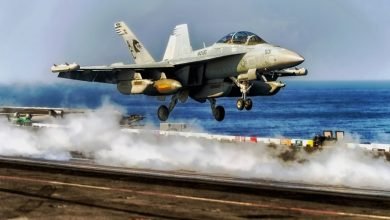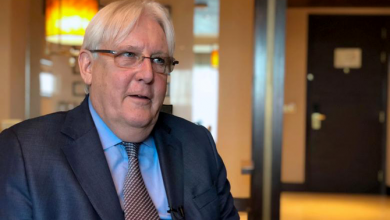US envoy says Houthis should learn from their losses in Yemen and negotiate peace

SMA NEWS – WASHINGTON
Yemen is in a “state of escalatory military action” and the Houthi militia must see that their recent losses indicate “there is no military solution and the only pathway forward is dialogue,” according to Tim Lenderking, the US special envoy for Yemen.
The Houthi offensive on the Yemeni province of Marib, including repeated attacks on civilian areas and against camps for internally displaced persons, “has been the primary obstacle to peace efforts,” he said.
Lenderking was speaking during a virtual discussion organized by the US Institute of Peace, in cooperation with the UN Development Program, to examine the latter’s recent report titled Assessing the Impact of War in Yemen: Pathways for Recovery.
The Yemeni civil war, which began in 2014, is considered one of the world’s worst humanitarian and developmental crises. The report predicts that, should the conflict continue through 2030, 1.3 million people will die as a result.
The Houthis’ Marib offensive, launched last February in an attempt to take control of one of the last remaining strongholds of the internationally-backed government, has sparked widespread international condemnation as the energy-rich province had been the largest safe haven for displaced people who have fled the fighting since the conflict began.
Lenderking said the US is deeply concerned with the growing number of civilian casualties in Yemen, and called on all parties to ensure civilians are protected according to the provisions of international humanitarian law.
“Let me be clear, when we speak of protection of civilians in the region we also include the tens of thousands of US citizens living in the Gulf, whose safety is the top US national security priority,” he added.
This was a reference to the near-daily cross-border attacks by the Iran-backed Houthi militia in Yemen on targets in Saudi Arabia and, more recently, the UAE.
Lenderking said this also includes the local Yemeni staff employed by the US in Sanaa that the Houthis detained when they seized control of the former US embassy compound in the capital, “whose safe release we remain committed to.”
The envoy said his country’s diplomatic efforts have translated into two important building blocks for peace in Yemen. The first is a “growing international consensus on the need for a cease-fire and a political solution,” and the second is “momentum around a more inclusive peace process that takes into account diverse views across Yemen” to end the fighting.
Lenderking said he is hopeful that peace in the country remains possible but a durable Yemeni-led solution is required to end the conflict and address the humanitarian crisis. This year would bring new opportunities, he added.
Khalida Bouzar, UN assistant secretary-general, UNDP assistant administrator and regional director of the UNDP Bureau of Arab States, said the report confirms that if the war in Yemen continues until 2030, the effect on people’s lives will be even more disastrous and the recovery costs more enormous.
“The economic gain of peace is enormous,” she said. “However, peace alone is not enough, so it needs to be accompanied by a holistic and people-centered recovery approach, cutting across the humanitarian development spectrum and also ensuring national ownership, leadership of the Yemeni people and the commitment of the international community.”
The report predicts that deaths from indirect causes — such as lack of access to food, water, sanitation, health care and other basic services — amounted to 60 percent of annual deaths in Yemen in 2021, and this will increase to 75 percent by 2030. It said that a child below the age of five died every nine minutes last year, and that this rate will increase to every five minutes, with additional effects on gross domestic product, poverty and malnutrition in the future.








